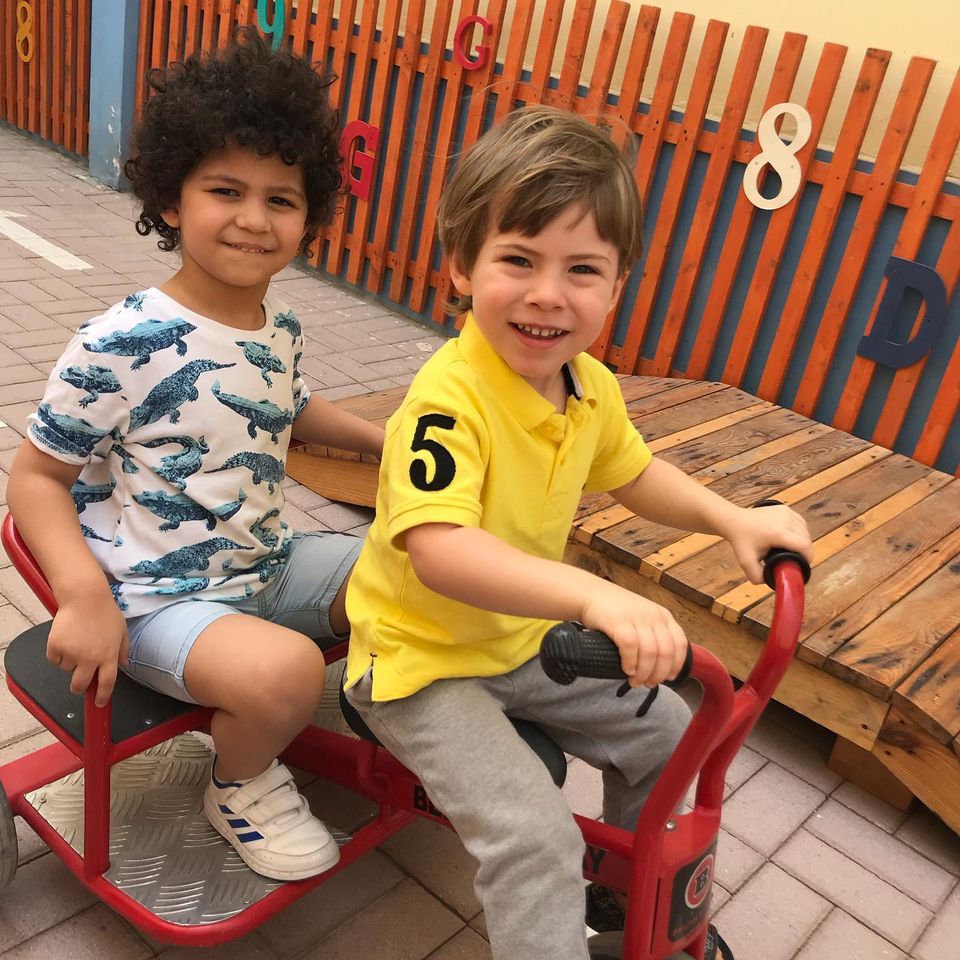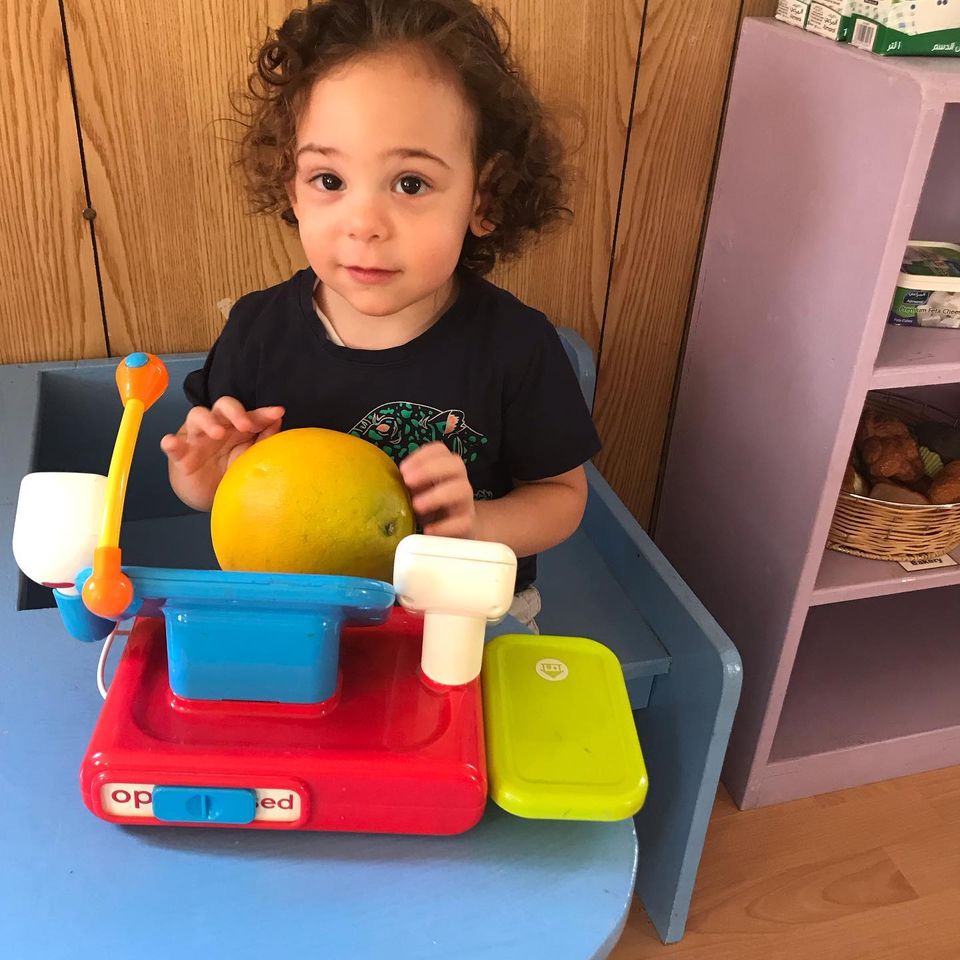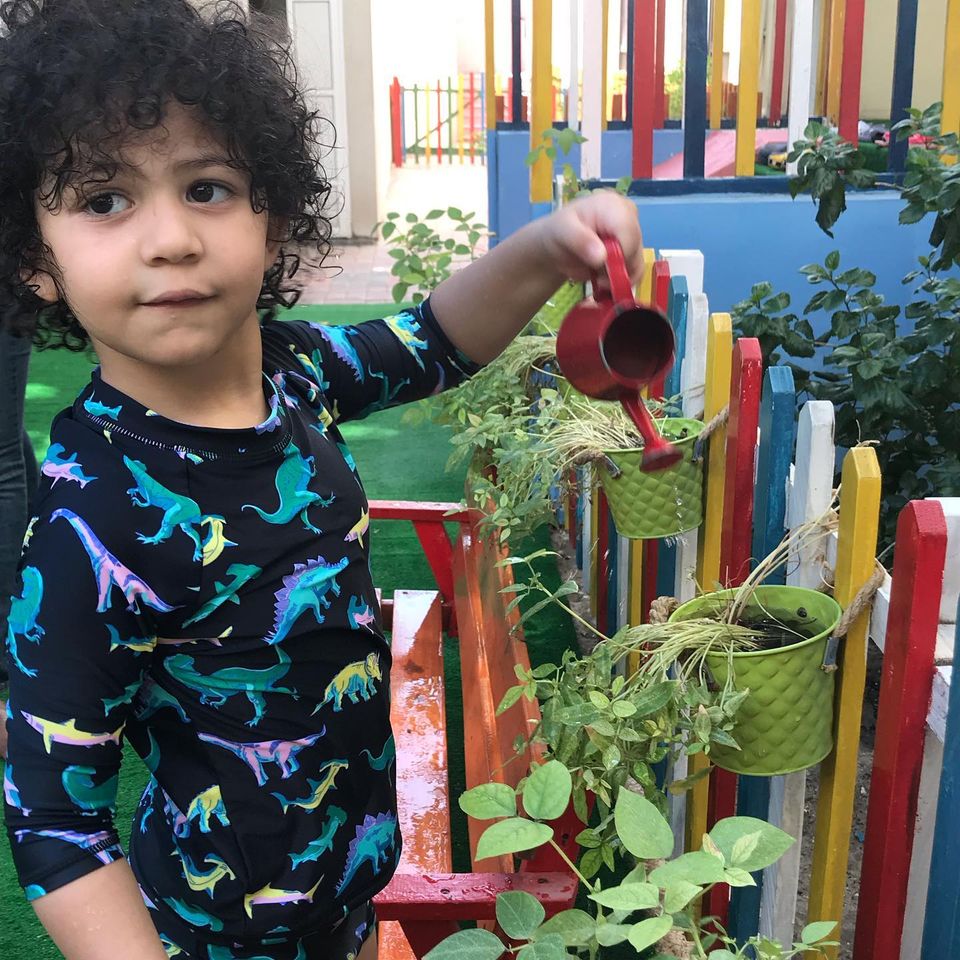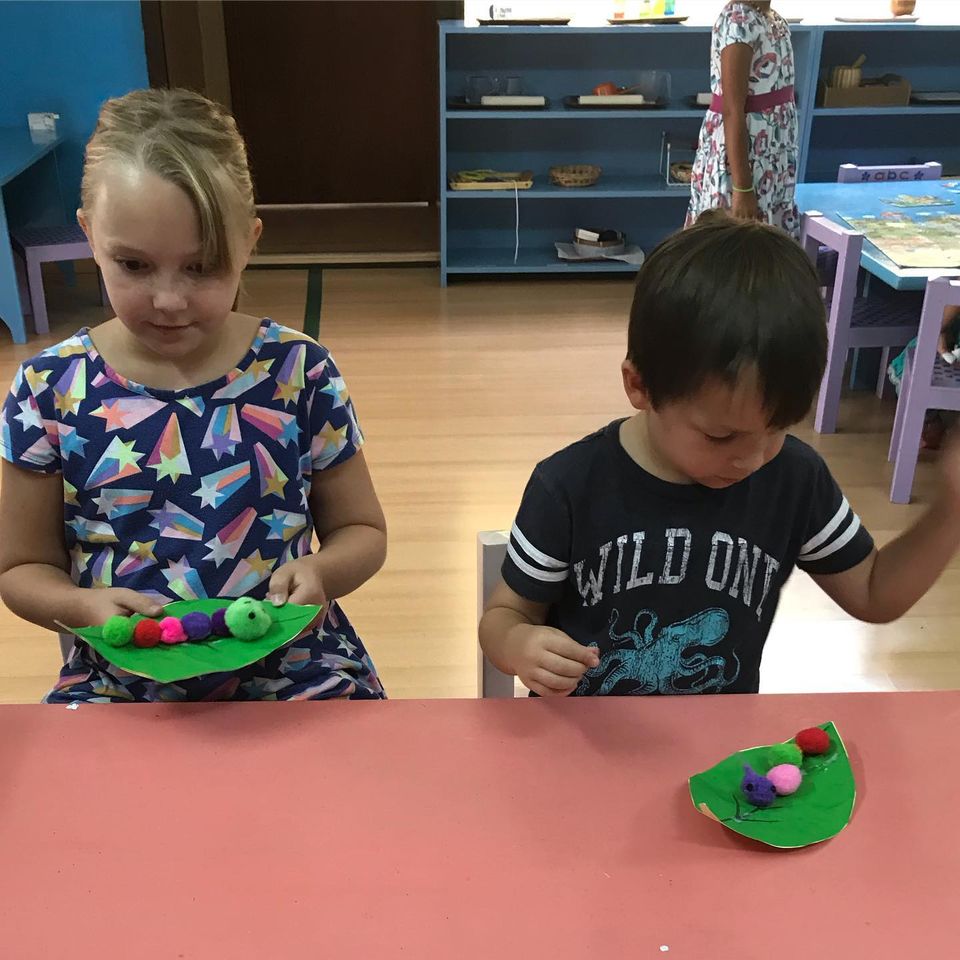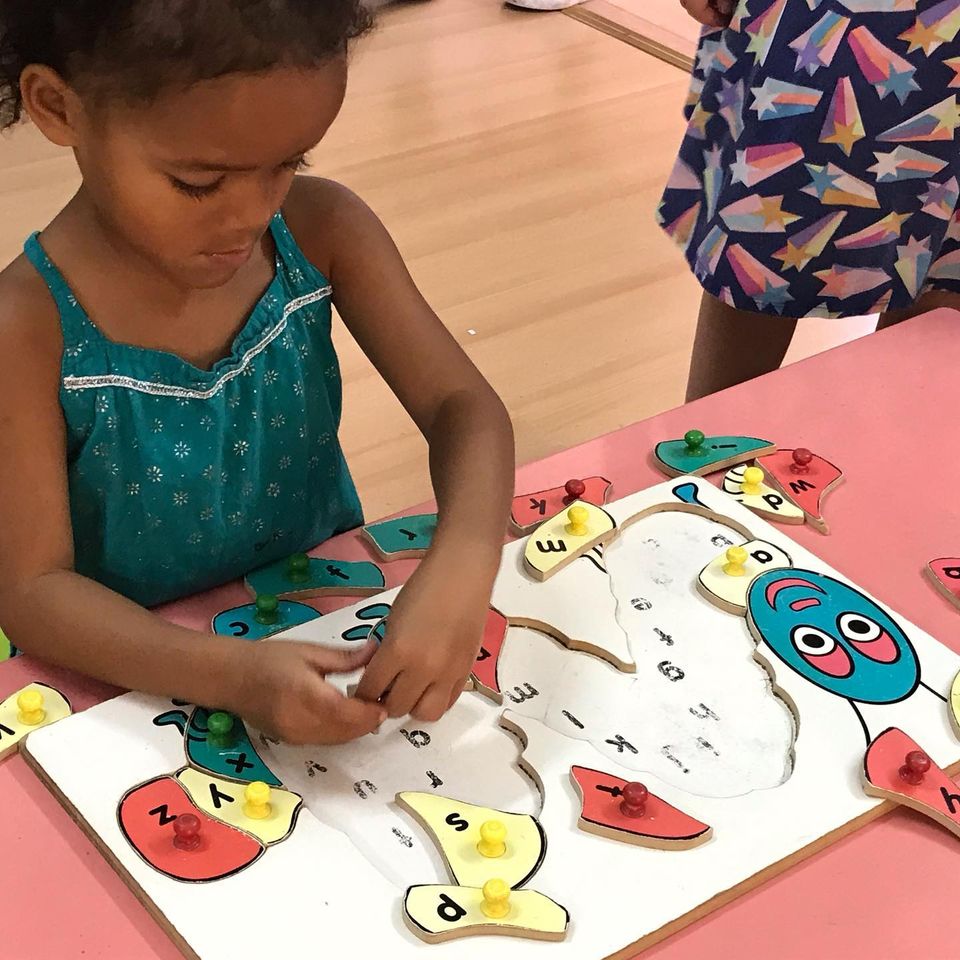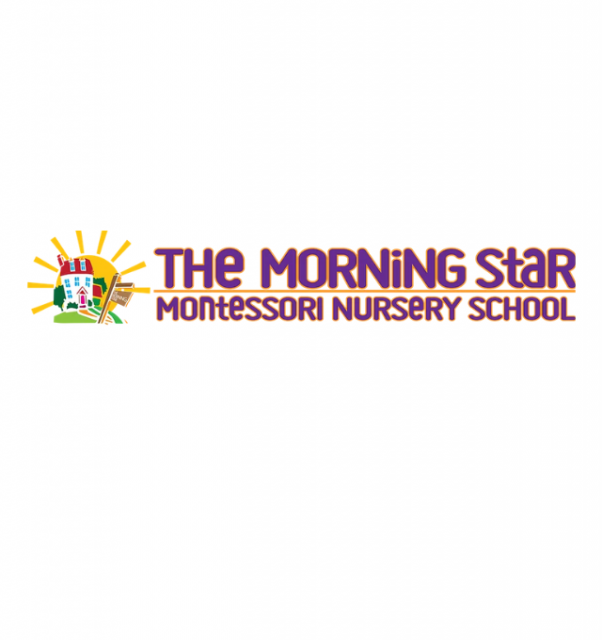
The Morning Star Montessori Nursery School
Operational Hours
Sunday : 7:30 AM To 1:30 PM || Monday : 7:30 AM To 1:30 PM || Tuesday : 7:30 AM To 1:30 PM || Wednesday : 7:30 AM To 1:30 PM || Thursday : 7:30 AM To 1:30 PM || Friday : Day Off || Saturday : Day OffDescription
The Morning Star views education as an aid and a preparation for life. We believe that every child is capable of achieving their full potential, when provided with the right environment, materials and guidance.
The Montessori Method takes a child-centred approach to learning that is focused on self-directed activity and hands-on learning. The Method is scientifically based on the key developmental stages children move through from birth to adulthood. It is designed to support and nurture children’s needs and interests by providing them with learning experiences suited to their stage of development. As Doctor Maria Montessori states: “Education is a natural process carried out by the child, and is not acquired by listening to words, but by experiences in the environment.”
Montessori Classrooms
Montessori classrooms are beautifully crafted environments that are designed to meet the needs of children in a specific age range. The role of the Montessori teacher within this environment is to observe and guide each student on their unique development journey. The focus is on children learning and leading, not on teachers teaching. In addition, the Montessori teacher presents the Montessori activities to the children. As a result, children learn by watching the presentations, and then completing the activities on their own.
In the Montessori classroom, children make independent choices, enjoy freedom of movement, and are guided towards a love of learning. Children work individually, or in small groups, using self-correcting educational materials. Most unique about these materials is that each has been specifically designed to isolate one skill or concept. In effect, this self-correcting quality allows children to discover the outcome of the materials independently, and at their own pace.
Montessori Materials
The Montessori materials match children’s interests with the five Montessori curriculum areas. These include: practical life, sensorial, mathematics, language and culture. Through interest-based experiences, children learn to develop key knowledge areas and skills that assist with their social, cognitive, physical and emotional development. In effect, the Montessori materials teach children how to problem solve, work together, correct their own work.
Montessori education has been time tested with more than 100 years of success in diverse cultural and socioeconomic contexts across the world. Its success endures because it is scientifically based on how children learn; they learn experientially. Everything about Montessori is focused on teaching children to develop the knowledge and skills they need to achieve their potential.
The Montessori Curriculum
At The Morning Star, we believe that education is an aid and a preparation for life.
Our Curriculum is based on Doctor Maria Montessori’s findings about the key developmental stages children move through from birth to age six.
The Montessori Curriculum is an innovative learning framework that incorporates specific learning outcomes and knowledge skills that align with children’s developmental needs and interests. It is divided into five key areas of learning: practical life, sensorial, mathematics, language, and culture. As children progress through the Montessori Curriculum, they encounter more challenging learning materials that are appropriate to both age and skill levels. In this way, the Montessori Curriculum emphasises learning as a process that cannot be determined by a child’s age.
Practical Life
Practical Life activities help children learn how to care for themselves and their environment. These activities help the child to become more independent, leading to greater self-confidence, and the ability to face new challenges. Practical Life exercises include lessons in grace and courtesy, care for self, and care for the environment. The purpose of these activities is to enhance co-ordination, concentration, independence, and indirectly prepare children for writing and reading. Activities often include cleaning, food preparation, polishing and watering plants.
Sensorial
Sensorial materials were designed by Doctor Maria Montessori to help children express and classify their sensory experiences. The purpose of sensorial activities is to aid in the development of the intellectual senses of the child, which develops the ability to observe and compare with precision. There are sensorial materials that focus on visual perception, tactile impressions, auditory sense, and olfactory and taste perceptions. Activities often include matching and grading materials that isolate the sense of sight, sound, touch, taste and smell.
Language
Language materials are designed to enhance vocabulary and explore both written and spoken language. Through language-based activities, such as the sandpaper letters and the moveable alphabet, children learn phonetic sounds and how to compose words phonetically. They progress using concrete materials to compose their own written work, read the work of others, and learn to communicate their unique thoughts and feelings.
Learning Arabic at The Morning Star
- Active listening and spoken language activities that include Arabic reading aloud to children, enriching the classroom with words.
- Fostering the development of fine motor skills, and facilitating sound consciousness.
- Presenting Montessori language materials and activities, including the Metal Insets, Sandpaper Letters, Movable Alphabet, and Wooden Language card in Arabic.
- Implementing a phonics reading program, including materials that facilitate the identification of phonograms, consonant digraphs, and high-frequency sight words
- Materials and activities that introduce and reinforce creative writing and the parts of speech, including nouns, articles, adjectives, and verbs.
- Enriching the program with engaging themes and quality children’s literature.
Mathematics
Mathematical concepts are introduced to the child using concrete sensorial materials. Initial explorations with sensorial materials encourage children to understand basic maths concepts such as learning number recognition, counting and sequencing of numbers. Sensorial work prepares the child for a more formal introduction to mathematics, and the introduction of abstract mathematical concepts such as the decimal system and mathematical operations.
Culture
Cultural activities lead the child to experience music, stories, artwork and items from the child’s community, society and cultural background. The areas of geography, science, zoology and botany are all included in this area. A range of globes, puzzle maps and folders containing pictures from different countries all help to give the child an insight into different cultures. The culture area encourages children to develop their capacity for creation, and develop fine motor skills. Whilst learning to freely express themselves. Through cultural activities, children develop an awareness and appreciation of the world around them.
What’s unique about Montessori learning materials?
- Control of error
- Purposeful activities using movement and exploration
- Materials isolate one concept or skill
- Aesthetic and engaging
- Hands-on experiential learning
- Simplify abstract concepts
- Develop fine motor skills
Control of Error
Montessori materials are sensory-based learning tools that are designed to isolate one skill or concept. The materials encourage hands-on learning, independent problem solving, and analytical thinking. Especially unique, is that each Montessori material is designed with a visual control of error. This means that the child can easily see and correct their own mistakes because the pieces do not fit together, or there is a piece left out. This self-correcting aspect also makes the materials auto-instructional. This means that the child can discover and master the outcomes of the material through repetition and practice, independent of an adult. As a result, Montessori students develop strong problem-solving skills, resilience, and concentration.
Progression Order
Within the Montessori classroom, the Montessori materials are displayed within their specific Curriculum area, including Practical Life, Sensorial, Mathematics, Language, and Culture. Each material is displayed in progression order, from easiest to hardest, and from left to right. This logical structure encourages children to organise their thinking, progress logically through the Montessori program, and absorb the outcome of the material at their own pace. The left to right orientation of the Montessori materials also assists children with preparation for reading and writing, and the way that the brain naturally processes information.
Fine Motor Skills
In addition to teaching children concrete knowledge areas and skills, Montessori materials are also beneficial for building fine-motor skills in children. Maria Montessori understood fine motor development to be a crucial aspect of children’s education because of its link to how children come to understand their world. Children first learn through their hands. Incorporating both gross and fine motor skills is crucial to a balanced approach to each childhood education that incorporates the social, physical, mental and emotional aspects of child development. Therefore, many Montessori materials encourage the development of these skills from a young age. By allowing children to experience learning through their senses, the Montessori materials teach children to become independent, self-motivated learners, with the skills to thrive.
Montessori Education Program
The goal of early childhood education should be to activate the child’s own natural desire to learn.” - Doctor Maria Montessori
The Montessori Education Program for infants, toddlers and pre-schoolers, is based on self-directed activity, hands-on learning, and collaborative play. In the Montessori classroom, children make creative choices in their learning, while the classroom and the teacher offer age-appropriate activities to guide their progress. Children work individually or in small groups to discover and explore key learning areas, develop their intelligence, and achieve their full potential. Each Montessori program builds on the one before it, providing challenges that are both appropriate to age and skill level. In this way, the infant, toddler and preschool program aim to prepare children, not just for school, but for life.
1-2 Infants
Doctor Maria Montessori stated that education should begin at birth. Montessori Academy’s Infant Program is designed to nurture the quickly developing Infant as they take their first steps towards independence. The focus of the Infant Education Program is to assist children in reaching their key development milestones by helping them to develop their psycho-motor, fine motor, social and language skills. Our trained Montessori teachers aim to create family partnerships to nurture and support each child’s unique learning opportunities as they form their intelligence and personality. Materials used in the Infant Program have been carefully selected to fulfill the needs of the quickly changing infant.
Infant Program Goals
- Provide a safe, engaging and nurturing learning environment
- Foster the development of language and social skills
- Foster a sense of belonging and trust in their world
- Develop confidence in their emerging abilities
- Develop gross motor coordination and fine motor skills
- Offer opportunities to gain independence in daily tasks
2-3 Toddlers
The Morning Star’s Toddler Program is specifically designed to cater to the needs of young children by establishing a home like environment that encourages sensory based learning. The focus on the Toddler Education Program is to cultivate this age groups growing need for independence, order, sensory exploration, movement and language. Our program covers the five curriculum areas, with a strong focus on physical education, art, culture and community partnerships. As with any Montessori environment, the children’s activities are set out to entice the child to discover and explore. Toddlers work independently, or in small groups, and are introduced to each material at the appropriate time for their individual development.
Toddler Program Goals
- Provide a safe, engaging and nurturing learning environment
- Foster the growth of functional independence and autonomy
- Develop children’s sense of confidence, self-identity, and belonging
- Promote respect for diversity and their environment
- Refine gross motor coordination and fine motor skills
- Encourage children to develop skills and processes such as critical thinking and experimentation
- Foster the development of effective communication skills
Admissions
As each school reflects their own values and school culture, it is important that you have a visit to our school to ensure the school's environment is a good fit for your child. We ask all new parents to visit our school and tour our facilities before they make a commitment to our programs.
Applications will be accepted throughout the year. Once you have viewed the school and have decided to apply for a place, please complete an application form. We accept children from many different cultures and countries. Most children speak either English or their mother tongues. There is no prerequisite for their language. It is not a requirement for the children to speak English upon admission.
The formal application process includes a student visit with the principal to screen your child. This allows the school a chance to evaluate your child's abilities and identify areas for development for placement within the school. In addition this visit gives the child and parent an opportunity to be in the school environment. There is time during the student visit to answer individual questions about the Montessori curriculum and school procedures at The Morning Star Montessori Nursery School.
Programmes Offered
| Baby Montessori Class - Caterpillars: 12 months - 24 months | Pre- Montessori Class - Butterflies : 2 years to 3 years | Pre - Montessori Class - Bumblebee : 2 years to 3 years |
| Hours : 8:00 am - 12:00 pm | Hours : 8:00 am - 12:00 pm | Hours : 8:00 am - 12:00 pm |
| Days : Optional 3 days/a week; 4 days/a week; 5 days/a week | Days : Optional 3 days/a week; 4 days/a week; 5 days/a week | Days : Optional 3 days/a week; 4 days/a week; 5 days/a week |
| - | *Extended Day Programmes are offered at extra cost | *Extended Day Programmes are offered at extra cost |
Tours and Open House
School Tours
We would love the opportunity to meet you and give you a personal tour of our wonderful school. Tours can be scheduled for most school days however they must be booked in advance. Please contact us to arrange your tour. Your child is most welcome to accompany you.
We look forward to meeting you.
Open House Events
We always hold Open House events in November each year. Please contact the school for more details.
Application Procedure
- Forward inquiries about our Montessori programs to the Administrator
- Tour our facilities
- Submit registration form and fees to the school.
- Student visits the classroom without parents for one hour as part of the evaluation process
- Parent Interview
Interviews will be scheduled as soon as possible after requests are received.
Decisions on Admission
All decisions on admission will be returned in writing and parents will be notified as soon as possible. Decisions concerning admission will be final.
Admission preference will be given in the following order:
- Children presently enrolled in The Children’s House
- Siblings of enrolled children
- New children with previous Montessori experience
- Other applicants
When an opening occurs, children accepted will be admitted according to the chronological order of applications. The actual timing of admission to a class is an educational decision, it may be necessary for the school to deviate at times from the policy of chronological admission.
School Uniform
We have high expectations in all areas of school life and this includes uniform. We believe children should look neat and tidy. Our uniform consists of simple functional clothing suitable for the range of activities which may be encountered during the school day. We would ask all children wear their uniform to school. as it helps them to feel part of The Morning Star Montessori School. We feel that the school uniform encourages a sense of belonging and pride in our school.
The school uniform available at House of Uniform, Al'Ali Mall.
School Fees
| TERM 1 (SEPT - DEC) | TERM 2 (JAN - APR) | TERM 3 (APR - JUN) | |
| 3 days | BHD 550 | BHD 550 | BHD 550 |
| 4 days | BHD 650 | BHD 650 | BHD 650 |
| 5 days | BHD 730 | BHD 730 | BHD 730 |
**(MUSIC FEE AND PHYSICAL EXERCISE FEE ARE INCLUDED)
**NON-REFUNDABLE REGISTRATION FEE BD 50
TERMS AND CONDITIONS OF PAYMENT
- SCHOOL FEES MUST BE PAID IN ADVANCE IN ORDER TO SECURE YOUR CHILD’S PLACE.
- SCHOOL FEES ARE NON-REFUNDABLE.
- LATE PAYMENT FEES APPLIED
*FOR FULL DETAILS AND TERMS & CONDITIONS PLEASE DOWNLOAD THE FULL DOCUMENT

Please Login to add your review.



